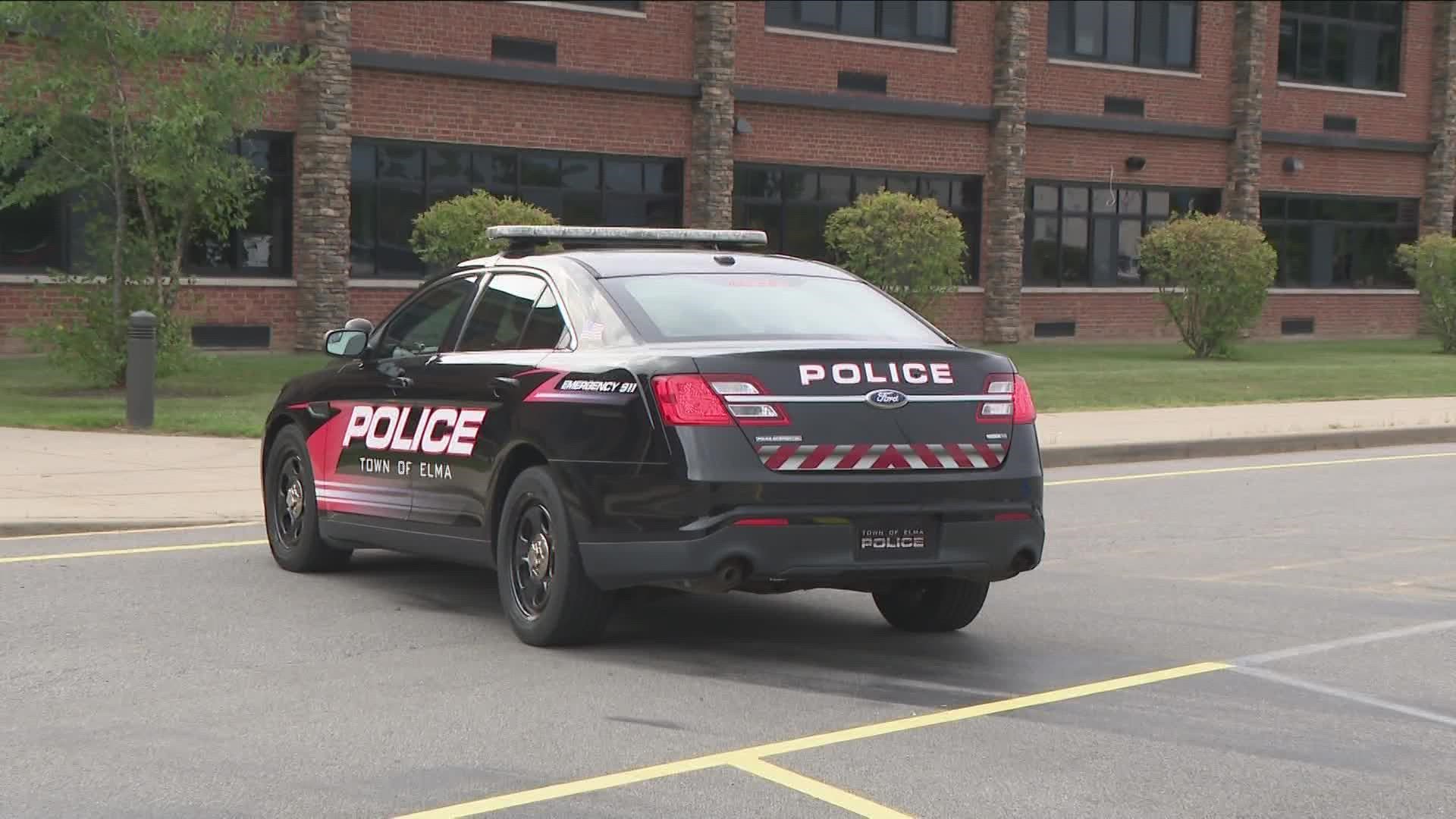ELMA, N.Y. — When school resumes next month the Iroquois Central School District will have a full-time school resource officer in each of its school buildings.
It's the first school district in Western New York of its size to be able to do this, according to Superintendent of Schools Doug Scofield and is perhaps among only a handful in the entire state.
"It really comes from the support of the community," said Scofield in noting the willingness of parents to have armed S.R.O's in schools and for their local tax dollars to be used to pay for it.
The district will use federal COVID relief dollars to help fund the program initially and hopes the State of New York will eventually assist Iroquois and other districts as part of a component of annual state aid to education.
Iroquois is not alone.
"You are now seeing districts bypassing the state which is unheard of," said NYS Assemblyman David DiPietro (R-147th District). "The state should be a partner in this and we should not be having school districts go on their own. We do it for so many other initiatives...it's a shame we can't do it for our children."
"We still have a significant amount of people, especially from the New York City area with an aversion, first to police officers, and an aversion to police officers with guns being in the schools," said NYS Sen. Patrick Gallivan (R-59th District) who has introduced legislation (S.4286A) to establish a statewide school resource officer program. "Those opposed say the police officers are there to arrest kids and destroy lives and that isn't the case at all."
The five new SROs who will work at Iroquois Central are technically not cops, but rather state-licensed armed security officers, working for Vista Security Group which the district contracted with to supply the officers.
That is not to say, however, that the SROs are not steeped in law enforcement training and experience.
All five of the new SROs are retired police officers.
"We have former New York State Troopers, Buffalo Police, State Environmental Conservation police, Corrections Officers, and Sheriff's Deputies," said Elma police officer Joseph Deplato, who served as the district's sole school resource officer for the past several years and under whose direction the SROs will serve.
"I wouldn't put any former cop in this job. I have to have someone with good people skills and who gets along with people," he said.
"They aren't here to be cops or to enforce discipline, which is the role of the school," said Jeff Rinaldo, a former Buffalo Police Captain, and partner in Vista Security, who now provides 15 school districts with SROs.
And while, according to DePlato, the SRO's primary role is to protect the school and help districts develop and enhance safety protocols, they also hope to foster positive relationships with students. This could help them gather intelligence if something was planned to go down, if students trust them enough to come to them with information.
By drawing on their years of experience in policing, the SROs ideally would know how to curb violence before it begins, or to react to it once it does.
"These are people that stay cool in a crisis and know how to handle emergencies," DePlato said.
Gallivan's bill, meanwhile, would clearly define "school resource officer" and would require an SRO to be an experienced active duty or retired member of law enforcement. It would also amend state education law to make the hiring of a school resource officer by a public school district or a charter school a shared service eligible for aid, and provide a reimbursement grant program for the hiring of an SRO in a non-public school.
The bill would also provide retired police officers who are employed as SROs with full peace officer powers, giving them the ability to arrest as well as carry a weapon on school grounds while on duty.
Additionally, the bill would amend the state’s retirement and social security law to allow school districts to hire retired police officers without needing a waiver for an annual salary of less than $50,000. (Under current law, retired public employees must apply for a waiver in order to earn more than $30,000 per year). The present cap on earnings, according to Gallivan, can deter the best-qualified and most experienced officers from becoming an SRO.
The legislation has been sent to the Senate’s Education Committee.

